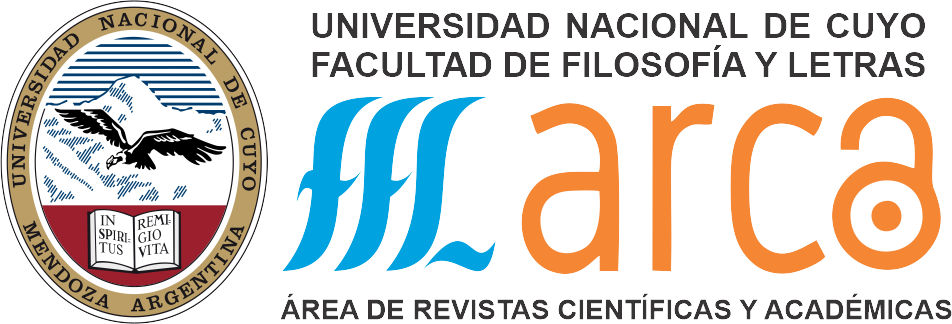Envíos
Lista de comprobación para la preparación de envíos
Como parte del proceso de envío, los autores/as están obligados a comprobar que su envío cumpla todos los elementos que se muestran a continuación. Se devolverán a los autores/as aquellos envíos que no cumplan estas directrices.- El envío no ha sido publicado previamente ni se ha sometido a consideración por ninguna otra revista (o se ha proporcionado una explicación al respecto en los Comentarios al editor/a).
- El archivo de envío está en formato OpenOffice, Microsoft Word, RTF o WordPerfect.
- Siempre que sea posible, se proporcionan direcciones URL para las referencias.
- Todo texto deberá presentarse en hoja tamaño A4 con los siguientes márgenes: superior e inferior: 2,5 cm; izquierdo y derecho: 3 cm, en fuente Times New Roman tamaño 12, y un interlineado de 1,5 ptos. Alineación justificada y sangría en primera línea de 0,63 cm.
- El texto se adhiere a los requisitos estilísticos y biliográficos resumidos en las Directrices del autor/a, que aparecen en Acerca de la revista.
- Si se envía a una sección evaluada por pares de la revista, deben seguirse las instrucciones en Asegurar una evaluación anónima.
- Las citas siguen el estilo Chicago para Humanidades (la bibliografía deberá enviarse en un archivo aparte), de acuerdo con los siguientes esquemas para nota al pie (para más detalles, ver https://biblioguias.uam.es/citar/estilo_chicago )
Aviso de derechos de autor/a
Se permite la reproducción de los artículos siempre y cuando se cite la fuente. Esta obra está bajo una Licencia Atribución-NoComercial-CompartirIgual 3.0 (CC BY-NC-SA 3.0).
Usted es libre de: Compartir "” copiar y redistribuir el material en cualquier medio o formato; adaptar "” remezclar, transformar y construir a partir del material.
La licenciante no puede revocar estas libertades en tanto usted siga los términos de la licencia
Bajo los siguientes términos:
Atribución "” Usted debe dar crédito de manera adecuada, brindar un enlace a la licencia, e indicar si se han realizado cambios. Puede hacerlo en cualquier forma razonable, pero no de forma tal que sugiera que usted o su uso tienen el apoyo de la licenciante.
NoComercial "” Usted no puede hacer uso del material con propósitos comerciales.
CompartirIgual "” Si remezcla, transforma o crea a partir del material, debe distribuir su contribución bajo la lamisma licencia del original.
No hay restricciones adicionales "” No puede aplicar términos legales ni medidas tecnológicas que restrinjan legalmente a otras a hacer cualquier uso permitido por la licencia.
Para mayor información, visite https://creativecommons.org/licenses/by-nc-sa/3.0/deed.es
Declaración de privacidad
Los nombres y las direcciones de correo electrónico introducidos en esta revista se usarán exclusivamente para los fines establecidos en ella y no se proporcionarán a terceros o para su uso con otros fines.




















